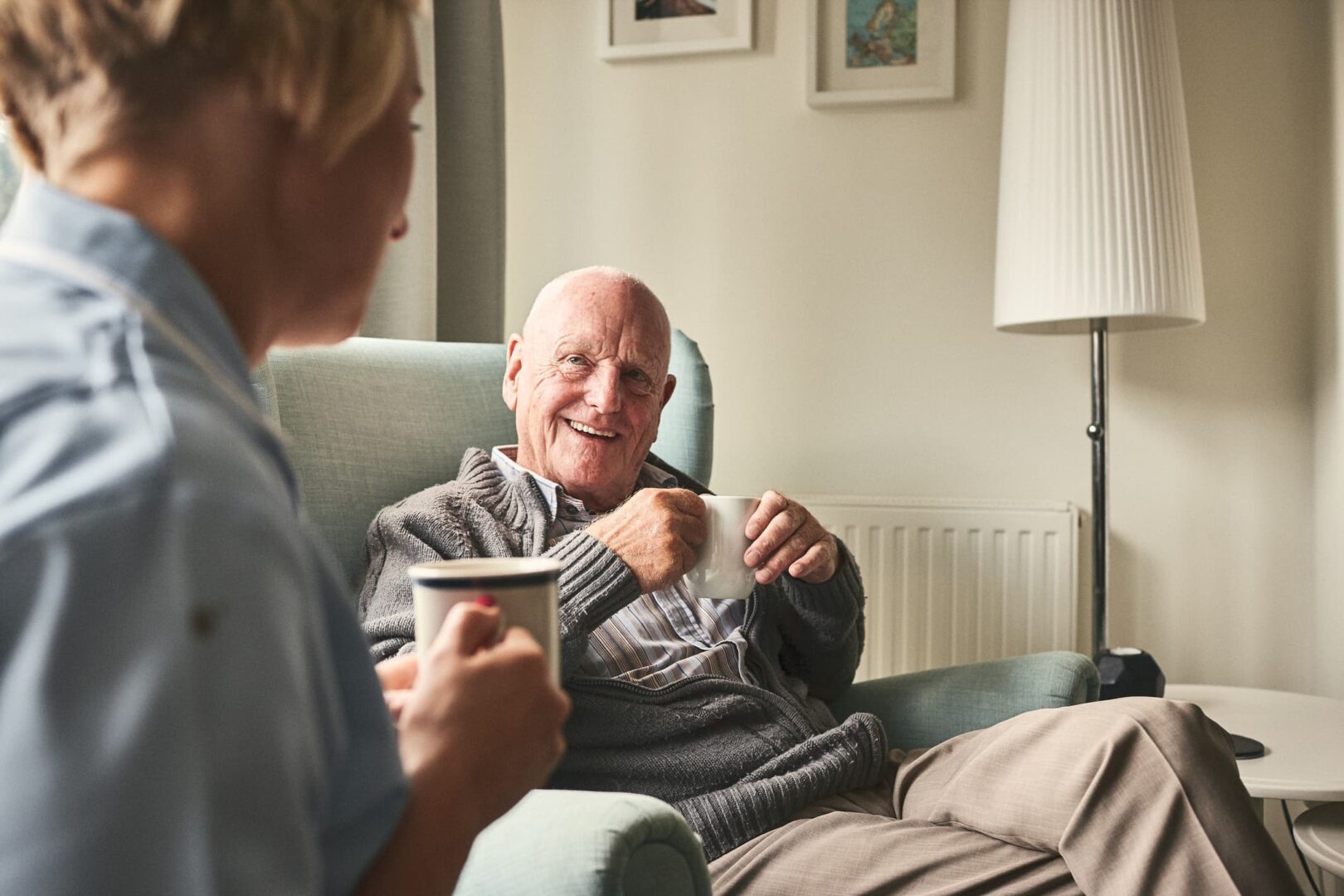Alzheimer's disease is a progressive neurological disorder that affects cognitive function, memory, and behavior. It can have a significant impact on both patients and caregivers, with patients experiencing memory loss, cognitive decline, and behavioral changes, and caregivers experiencing high levels of stress, fatigue, and financial burden.
Caregiving tips such as educating oneself about the disease, developing a daily routine, adapting the living environment for safety and comfort, encouraging social interaction, communicating effectively, providing emotional support, and prioritizing self-care are essential for improving patient outcomes and easing the burden on caregivers.
Caregiving Tips for Alzheimer's Care
Caregivers should educate themselves about the progression of Alzheimer's disease, common symptoms, and effective caregiving strategies. This knowledge can help caregivers provide better care and support for individuals with Alzheimer's. It is important for caregivers to understand that Alzheimer's disease affects each individual differently and to remain flexible and adaptable to changing needs.
Develop a Daily Routine
Individuals with Alzheimer's may feel more secure and less anxious when they have a consistent daily routine. Develop a daily schedule that includes regular mealtimes, activities, and rest periods. This routine can help provide structure and predictability, reducing confusion and anxiety for individuals with Alzheimer's.
Adapting the Living Environment for Safety and Comfort
Adapt the living environment to make it safe and comfortable for individuals with Alzheimer's. This may include installing grab bars in the bathroom, removing clutter, tripping hazards, and labeling drawers and cabinets. You can also consider making modifications to the home, such as installing ramps or stairlifts, to make the home more accessible and safe for individuals with Alzheimer's.
Encourage Social Interaction
Social interaction is important for maintaining cognitive function and emotional well-being. Caregivers can encourage social interaction by scheduling visits with friends and family, participating in group activities, or joining a support group. Social engagement can also help individuals with Alzheimer's maintain a sense of purpose and identity.
Communicate Effectively
Individuals with Alzheimer's may have difficulty communicating, so it is important for caregivers to communicate clearly and effectively. Caregivers should use simple language, give clear instructions, and allow time for the individual to process the information. Caregivers should also use nonverbal cues, such as facial expressions and body language, to help convey meaning.
Provide Emotional Support
Individuals with Alzheimer's may experience feelings of confusion, frustration, and anxiety. Caregivers can provide emotional support by listening attentively, offering reassurance, and validating the individual's feelings. It is important for caregivers to remain patient and understanding, even in the face of challenging behaviors or situations.
Prioritize Your Self-care
Caregiving can be emotionally and physically demanding, so it is important for caregivers to prioritize self-care. This may include taking breaks, engaging in physical activity, and seeking support from friends and family. Caregivers should also be aware of signs of caregiver burnout, such as exhaustion, irritability, and depression, and seek help if necessary.
Alzheimer's Disease Self-Care
Self-care is crucial for individuals with Alzheimer's disease to maintain physical and emotional well-being. Activities such as exercise, creative pursuits, and socialization can improve mood and reduce isolation. Caregiver support is also important in promoting self-care. Adequate nutrition, hydration, and sleep hygiene are also essential for overall health.
- Regular exercise: Engaging in regular exercise can have a significant impact on both physical and mental health. Exercise can help maintain cardiovascular health, increase muscle strength and flexibility, reduce the risk of falls, and improve mood. Caregivers can help individuals with Alzheimer's engage in regular exercise by accompanying them on walks, participating in exercise classes, or doing exercises at home.
- Healthy diet: A healthy diet is important for maintaining physical health and can also have an impact on cognitive function. A diet rich in fruits, vegetables, whole grains, and lean protein can provide the nutrients necessary for maintaining overall health. It is also important to limit foods high in saturated and trans fats, as well as added sugars.
- Mental stimulation: Stimulation is essential for maintaining cognitive function and can help delay the progression of Alzheimer's disease. Activities such as reading, playing games, and doing puzzles can help keep the mind active and engaged. Caregivers can help individuals with Alzheimer's engage in brain exercises by providing opportunities for these activities and adapting them to the individual's abilities.
- Social engagement: Social isolation can lead to depression and anxiety, while social engagement can help reduce stress and improve overall well-being. Activities such as volunteering, joining a club or group, or spending time with friends and family can provide opportunities for social engagement.
- Stress management: Stress can have a negative impact on physical and mental health, so it is important to develop strategies for managing stress. Activities such as meditation, deep breathing, and yoga can help reduce stress and promote relaxation. It is also important to identify sources of stress and develop strategies for coping with them.
Using Technology for Alzheimer's Care
Assistive technology can play a crucial role in improving the care and quality of life for individuals with Alzheimer's disease. Here are some examples of assistive technology devices and tools that can be used:
GPS Tracking Devices
Individuals with Alzheimer's may become disoriented or confused and wander away from their homes or caregivers. GPS tracking devices can help caregivers locate individuals with Alzheimer's who may wander or become lost.
These devices can provide real-time location updates and alerts to caregivers, allowing them to locate the individual quickly and easily. GPS tracking devices can help caregivers provide a safe environment for individuals with Alzheimer's and reduce the risk of accidents or wandering.
Medication Reminders and Dispensers
Medication management can be a challenge for individuals with Alzheimer's and their caregivers. Some individuals may forget to take their medication or take it incorrectly, leading to health complications.
Medication reminders and dispensers can help ensure that individuals with Alzheimer's take their medications on time and in the correct dosage. Some devices can also dispense medications automatically, reducing the risk of missed doses or incorrect dosages.
Communication Aids
Communication can be a challenge for individuals with Alzheimer's, who may have difficulty expressing themselves or understanding others. Communication aids, such as picture boards, speech-to-text software, or voice-activated assistants, can help individuals with Alzheimer's express themselves and communicate their needs effectively. These aids can help reduce frustration and anxiety and improve the quality of life for individuals with Alzheimer's.
Home Monitoring Systems
Caregivers often worry about the safety of seniors with Alzheimer's who live alone. Home monitoring systems can help caregivers monitor the safety and well-being of individuals with Alzheimer's. These systems can include sensors that detect falls or movement, video cameras, and alarms for smoke or carbon monoxide. Home monitoring systems can provide peace of mind for caregivers and allow individuals with Alzheimer's to maintain their independence in their own homes.
Using technology in Alzheimer's care can be a valuable tool for both individuals with Alzheimer's and their caregivers. However, selecting and implementing technology can be challenging, especially for those who are not familiar with it. To make the process easier, it is important to consider the individual's needs and abilities when selecting technology.
In Summary
Alzheimer's disease can have a significant impact on both patients and caregivers, with patients experiencing memory loss, cognitive decline, and behavioral changes, and caregivers experiencing high levels of stress, fatigue, and financial burden. Early detection and management of the disease are crucial for improving patient outcomes and easing the burden on caregivers.
Technology can also be a valuable tool in Alzheimer's care, enhancing safety, improving communication, simplifying daily routines, and providing peace of mind for caregivers. It is important to select and implement technology in a way that considers the individual's needs and abilities, provides training and support, ensures privacy and security, and regularly evaluates its effectiveness.





